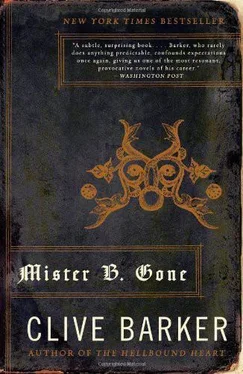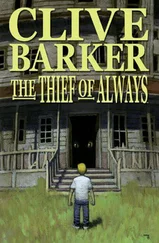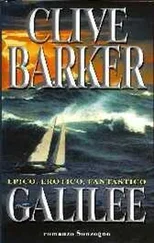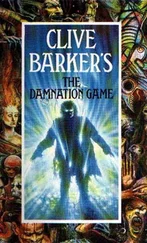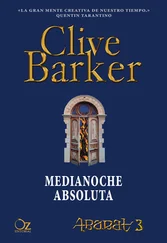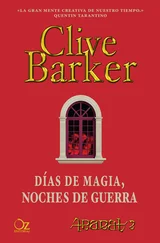Clive Barker - Mister B. Gone
Здесь есть возможность читать онлайн «Clive Barker - Mister B. Gone» — ознакомительный отрывок электронной книги совершенно бесплатно, а после прочтения отрывка купить полную версию. В некоторых случаях можно слушать аудио, скачать через торрент в формате fb2 и присутствует краткое содержание. Год выпуска: 2008, ISBN: 2008, Жанр: Ужасы и Мистика, на английском языке. Описание произведения, (предисловие) а так же отзывы посетителей доступны на портале библиотеки ЛибКат.
- Название:Mister B. Gone
- Автор:
- Жанр:
- Год:2008
- ISBN:978-0-06-018298-4
- Рейтинг книги:3 / 5. Голосов: 1
-
Избранное:Добавить в избранное
- Отзывы:
-
Ваша оценка:
- 60
- 1
- 2
- 3
- 4
- 5
Mister B. Gone: краткое содержание, описание и аннотация
Предлагаем к чтению аннотацию, описание, краткое содержание или предисловие (зависит от того, что написал сам автор книги «Mister B. Gone»). Если вы не нашли необходимую информацию о книге — напишите в комментариях, мы постараемся отыскать её.
Mister B. Gone — читать онлайн ознакомительный отрывок
Ниже представлен текст книги, разбитый по страницам. Система сохранения места последней прочитанной страницы, позволяет с удобством читать онлайн бесплатно книгу «Mister B. Gone», без необходимости каждый раз заново искать на чём Вы остановились. Поставьте закладку, и сможете в любой момент перейти на страницу, на которой закончили чтение.
Интервал:
Закладка:
"What are you printing now?" I asked the genius.
He arbitrarily plucked a page from the dozen or so that were neatly pegged up to dry on lengths of string above our heads.
"I had wanted to begin with the Bible."
"In the beginning was the Word," I said.
Luckily for me, Gutenberg knew the rest of the line, because all I recalled was those first six words from the Gospel according to John. Not long after reading them, I'd thrown the book back amongst the garbage on the Ninth Circle, where I'd first found it.
"And the Word was with God," Gutenberg went on.
"The Word ," I murmured. Then looking back at the Archbishop, I said, "Was it any particular Word, do you think?"
He gave me a silent sneer, as though to reply to me was beneath him.
"Just asking," I said, shrugging.
"This is my foreman. Dieter. Say hello to Mister B., Dieter."
A young bald man working on the press, his apron and hands liberally decorated with smears and handprints of ink, looked up and gave me a quick wave.
"Dieter convinced me that we should start with something more modest in scale than the Bible. So I'm testing the press by printing a school grammar book — "
"The Ares Grammatica ?" I said, having spotted the words on the title page, which was drying at the other end of the room. (My demonic vision saw what most human eyes would never have been able to read, so Gutenberg was delighted that I could name the book.)
"You're familiar with it?"
"I studied it, when I was much younger. But, of course, the copy my tutor had was very precious. And expensive."
"My printing press will put an end to the great expense of books, because it will make many in the same way, from a plate, set with all the letters. In reverse of course."
"In reverse! Ha!" This pleased me for some reason.
He reached up and pulled down another of the sheets drying overhead. "I persuaded Dieter that we might print one thing that was not so boring as a grammar book. So we agreed to print out a poem from the Sibylline Prophecies as well."
Dieter was listening to all this. He looked up briefly and cast a loving, brotherly smile in Gutenberg's direction. Clearly Gutenberg was one of those men who inspired devotion in his employees.
"It's beautiful," I said as Gutenberg handed the page to me. The lines of the poem were neat and legible. There was no elaborate illustration on the first letter, such as monks often took months to create on a manuscript. But the page had other virtues. The spaces between the words were precisely the same size and the design of the letters made the poem marvelously easy to read.
"The paper feels slightly damp," I observed.
Gutenberg looked pleased.
"It's a little trick somebody taught me," he said. "The paper is dampened before being printed on. But you know this, of course. You told me in the dream."
"And was I right?"
"Oh yes, sir. You were quite right. I don't know how I would have fared without the gift of your knowledge."
"It was my pleasure," I said, handing the sheet with the poem on it back to Gutenberg and wandering on down the length of the chambers, past the printing press to where two other men worked feverishly to arrange lines of mirror-image letters on wooden trays. All the necessary parts of a sentence — the letters in both upper- and lowercases, the empty spaces between the words, all the numerals, and, finally, of course, all the punctuation — were laid out on four tables, so that both could work without one getting in the way of the other. Unlike Dieter and his colleagues working on the press, all of whom took a moment from their tasks to look up at us when we entered, and even laugh when I made fun of the Archbishop, these two were so profoundly immersed in their work, referring constantly to a hand-scribed copy of the text they were concentrated on, that they did not even glance up. Their labor was as fascinating to watch as it was surely demanding to do. I found myself removed into an almost trancelike state by watching them.
"All the men have signed an oath of silence," Gutenberg said, "so that none but us should have the power of this press."
"Quite right," I replied.
It occurs to me now that the revelations, such as they were, are almost over; that there's only one Secret of any consequence left to tell. And given that fact perhaps a wise soul such as yourself, tired of petty games and schoolyard threats that have on occasion issued from me — mea culpa, mea maxima culpa — that you may think this is not an inappropriate time to forsake the book entirely.
Yes, I'm giving you one last chance, my friend. Call me sentimental but I don't have any great desire to murder you, as you know I will if you get to the final page. I am so much closer to you now than I was when I first told you about matching my strides; to the number of pages you turned, I can hear you muttering to yourself as you turn the page; and, of course, I can smell you and taste your sweat. You're uneasy, aren't you? Part of you wants to do as I have requested and burn the book.
If I may offer a little advice: That's the part to listen to. The other part, the part that feels defiant and is putting your life at risk just to play a dangerous game of dare, that part is just the willful child in you, speaking out, demanding to be heard. That's understandable. We all have these slivers of who we were when we were very, very young left in our heads.
But please, don't listen to that voice. There's nothing left in the pages to come that's of any great interest. It's just the politics of Heaven and Hell from here.
The human story is over. Now you know what the mystery of the Gutenberg workshop was you're probably thinking — and I wouldn't blame you — all this for a printing press ? Ludicrous. No, I wouldn't blame you for setting fire to this damn book out of sheer fury, to have been given something at the end of your journey that turns out to be this inconsequential. But you can't say I didn't warn you. God alone knows how many times I told you to do the sensible thing and let the book go. But you insisted on waiting. You obliged me to tell you things, like the curious knot of feelings I had for Quitoon, that I would have preferred to keep to myself, but which I confessed out of respect for the truth, as a thing entire, not scraped together from bits and pieces.
Well, it's over now. You can still burn the book and be satisfied that you read the bulk of it. It's time. There are a few pages remaining, but why waste more of your valuable time? You now know what mysterious invention Quitoon had been in pursuit of — the same one that makes the existence of this very book possible.
Everything comes full circle in the end. You met me in these pages. We learned to understand one another as we went from the garbage heaps of the Ninth Circle up into the World Above, and then from Joshua's Field to the long road I traveled with Quitoon. I didn't bore you with a list of the places we went in search of some new invention Quitoon had heard about. They were mostly instruments of war: cannons and long bows, siege towers and battering rams. Sometimes a thing of beauty would await us at the end of one our searches. I did get to hear the first harpsichord make music, for instance, in the 1390s, I think. I lose track. So many places, so many creations.
But the point really is: Now that journey is over. There are no more roads to take. No more inventions to see. We have arrived back at the pages where we met; or rather at the device that first made such pages. It's such a tight little circle in the end. And I'm trapped in it. You're not.
So go. Go on, while you can, having seen more perhaps than you expected to see.
And as you are leaving, tear these pages out and toss them into a little bonfire you've made. Then get about your business and forget me.
Читать дальшеИнтервал:
Закладка:
Похожие книги на «Mister B. Gone»
Представляем Вашему вниманию похожие книги на «Mister B. Gone» списком для выбора. Мы отобрали схожую по названию и смыслу литературу в надежде предоставить читателям больше вариантов отыскать новые, интересные, ещё непрочитанные произведения.
Обсуждение, отзывы о книге «Mister B. Gone» и просто собственные мнения читателей. Оставьте ваши комментарии, напишите, что Вы думаете о произведении, его смысле или главных героях. Укажите что конкретно понравилось, а что нет, и почему Вы так считаете.
